
Anders Hedenström
Professor of Theoretical Ecology, Lund University
Animal migration is the most fascinating subject of biology and studying it requires approaches from various scientific disciplines. My own research focuses on flight of birds and more recently bats, where these animals are observed when flying in the Lund University wind tunnel dedicated for this. Here, we use state of the art methods to study wing beat kinematics and to visualize wake vortices and flows near the surfaces of wings. By doing so, we can draw conclusions about the magnitude, direction and time history of aerodynamic forces, and the information obtained help us to build better theoretical models about animal flapping flight. For example, recently our lab, the animal flight lab, discovered that bats use a leading edge vortex to generate lift when flying slowly, which is the same mechanism that allows bumblebees to buzz around between flowers.
Our main inspiration comes from the animals’ behaviour and performance in the wild, and therefore a long term goal is to be able to transfer knowledge that we gain from wind tunnel experiments to help interpret and explain the flight and migration of birds and bats in the wild. I am currently making an effort to initiate a collaborative study of bat migration across and around the Baltic. These goals agree with the goals of CAnMove, and a dream is to be able to track small wild birds and bats during their migrations to find out more about the strategies and limits of animal migration.
Less ![]()
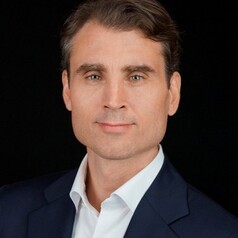
Anders Friis Marstand
Associate Professor in Leadership and Organisational Behaviour, Durham University
Dr Anders Friis Marstand is Associate Professor in Leadership and Organizational Behavior at Durham University Business School and Associate Editor of the Journal of Occupational and Organizational Psychology. His current main research interests focus on how leaders experience leading their teams and how they respond to their leadership challenges. His research has been published in leading peer-reviewed journals such as Leadership Quarterly, Personnel Psychology, Journal of Occupational and Organizational Psychology and Human Relations.
Less ![]()
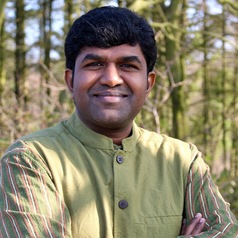
Anderson Jeremiah
Lecturer in the department of Politics, Philosophy and Religion, Lancaster University
Anderson Jeremiah holds a Ph.D degree from the Centre for the Study of World Christianity at New College, the University of Edinburgh and is an ordained Anglican Priest. His areas of academic interest include Christian Theology in Asia, Postcolonial Approaches to Theology, Diaspora Christianity, Dalit Studies, Contextual Theologies, History of Christianity, Modern Missionary Movements, Inculturation, Recent trends in World Christianity, Biblical Hermeneutics, Economics and Liberation Theology, Interface between Christianity and other Religions, Inter-Faith Understanding, Religious fundamentalism and Politics, Hinduism and Buddhism, and Religious Studies. His recent research in collaboration with local churches in UK includes: 'Traditions in Conflict: the impact of immigrant-based churches on traditional church bodies in the UK', 'The Changing 'Colour' of World Christianity: understanding the trends in the modern growth and expansion of Christianity'
Less ![]()
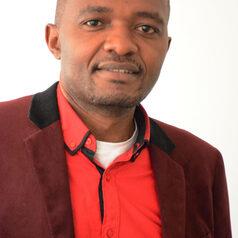
Anderson Kehbila
Programme Leader, Energy and Climate Change, Stockholm Environment Institute
Dr. Anderson Kehbila is the Programme Leader for Energy and Climate Change at the Stockholm Environment Institute, Africa Centre. Anderson has 17 years of project management experience in providing and overseeing the delivery of climate change research, modelling, analysis, monitoring, training, and decision-support services for the management of climate change mitigation and adaptation risks across various infrastructure and natural resource sectors. He has written 60 peer-reviewed journal articles, book chapters, professional reports, posters and discussion papers in the fields of climate mitigation, adaptation and development. His research interests lie in the nexus between artificial intelligence, citizen science, environment, and development.
Less ![]()
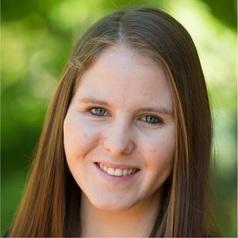
Andi Wilson
Postdoctoral fellow, University of Pretoria
I have completed undergraduate, honours, masters and PhD degrees in genetics from the University of Pretoria.
My research focus has been on sexual reproduction in fungal pathogens of forestry trees, with an emphasis on the underlying genetic features.
I have published a variety of peer-reviewed articles in this field.
Less ![]()
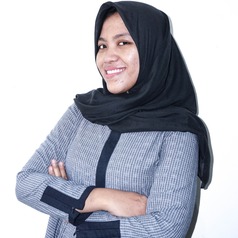
Andi Misbahul Pratiwi
PhD Student, University of Leeds
Andi Misbahul Pratiwi is a researcher at the Gender Research Center of the University of Indonesia. She pursued her Master's degree in Gender Studies at the University of Indonesia from 2016 to 2018. From 2015 to 2020, she worked as an editor at Jurnal Perempuan, an accredited feminist academic journal in Indonesia. In 2021, she joined the National Commission on Violence against Women (Komnas Perempuan) in the Law and Policy Reform Sub-Commission. Currently, she is a Ph.D. student at the University of Leeds, UK, focusing on Gender, Sexuality, and Climate Change in the Global South, with UKRI studentship.
Less ![]()
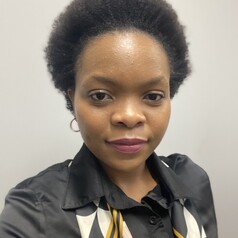
Andiswa Mfengu
Lecturer, University of Cape Town
I am the deputy head of department and a lecturer in the Department of Knowledge and Information Stewardship in the Humanities Faculty at the University of Cape Town, South Africa. I hold a PhD in library and information studies from the University of Cape Town. I am an emerging scholar in the area of research impact assessment, focusing on the development of a more holistic framework for such assessment that is relevant to transformative and decolonising contexts.
Less ![]()
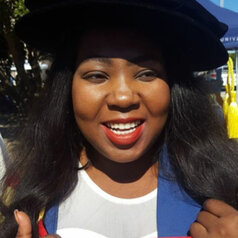
Andiswa Mvanyashe
Senior lecturer in Languages and Literature, Nelson Mandela University
I am an IsiXhosa lecturer at Nelson Mandela University and a Xhosa language translator. I am the author of two books, "IsiXhosa for Beginners" and "IsiXhosa For Beginners 2". I was also a board member of the Unako community-based movement. I got accepted for the GNOME outreach programme internship as a software translator. I translate English to Xhosa. In 2011, I worked as an IsiXhosa language practitioner at Translate.org. I have been involved in substantial translation projects like the ABSA translation project as a Xhosa specialist. I also had the privilege to be involved in a reading week project for Nelson Mandela Bay Municipality Library as a judge for the Xhosa novel year 2014 and 2015 as a facilitator.
I hold a doctoral degree (DLitt, isiXhosa), master's degree in IsiXhosa (2011), a BA honours degree in IsiXhosa (2009), and BA degree in media, culture and communications (2008) from the Nelson Mandela Metropolitan University. During my university studies, I served as a Sergeant at Arms and public relations officer for the Toastmasters Society.
Less ![]()
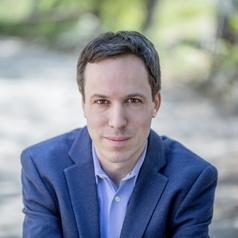
András Tilcsik
Professor of Strategic Management, University of Toronto
András Tilcsik holds the Canada Research Chair in Strategy, Organizations, and Society and is a Professor of Strategic Management at the Rotman School of Management at the University of Toronto. His research focuses on organizations, occupations, and work. His research has been recognized with several awards from the American Sociological Association, including the W. Richard Scott Award for Distinguished Scholarship and the Granovetter Award for Best Article in Economic Sociology. His book Meltdown (New York: Penguin Press, 2018), coauthored with Chris Clearfield, received the National Business Book Award, the Academy of Management's George R. Terry Book Award, and the Bracken Bower Prize, and was named one of the books of the year by the Financial Times.
Less ![]()
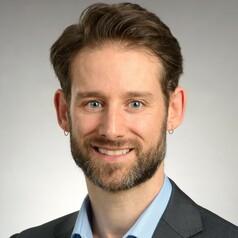
André Magnan
Associate Professor, Sociology and Social Studies, University of Regina
André Magnan is Associate Professor of Sociology and Social Studies at the University of Regina. His research and teaching interests include the sociology of agri-food systems, globalization and development, and sociological theory. Dr. Magnan has two principal areas of research. First, he has studied the financialization of agrifood systems, with a focus on changing patterns of farmland ownership and control. Here Dr. Magnan has documented how financial investors of different stripes are buying prairie farmland on a large scale. Along with Annette Desmarais, he conducted a multi-year study funded by the Social Sciences and Humanities Research Council aiming to understand how investor activity and farmland ownership concentration are affecting family farmers, rural communities, and the agricultural industry in the Canadian prairie provinces.
Less ![]()
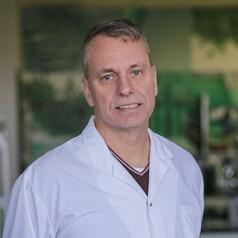
Andre Pichette
Professeur en chimie des produits naturels, Université du Québec à Chicoutimi (UQAC)
Expert reconnu en chimie des produits naturels. Il se spécialise dans l’analyse, l’isolation, l’identification et l’étude des relations structure-activité des produits naturels.
Less ![]()
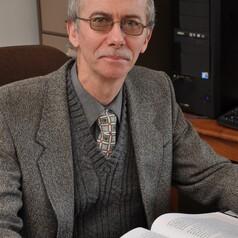
André Wessels
Senior Professor (Emeritus) and Research Fellow, Department of History, University of the Free State
André Wessels joined the staff of the Department of History at the University of the Free State (UFS) as a Lecturer in 1988, and retired as a Senior Professor in 2021; but he continues his association with his Department and the UFS as a Research Fellow. His main research focus is the military history of twentieth-century South Africa, with special emphasis on the history of the Anglo-Boer War of 1899 to 1902, and the history of the South African National Defence Force and its predecessors. He is the author, co-author or editor of eleven books, and has also published some 150 articles in peer-reviewed accredited academic journals, many articles of a more popular nature, some 150 book reviews, and about twenty chapters in books. His latest book publication is 'A century of South African Naval history: The South African Navy and its predecessors 1922-2022' (Naledi, 2022).
Less ![]()
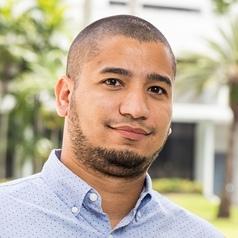
Andre Luis da Costa da Silva
Research Assistant Professor of Biological Sciences, Florida International University
Education:
PhD, University of Sao Paulo
BS, University of Mogi das Cruzes
Less ![]()
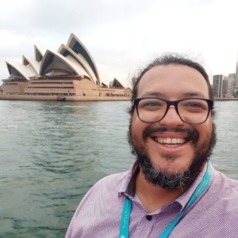
Andre Luiz Saraiva De Oliveira
Solid State Physicist, UNSW Sydney
I am a quantum theorist, specialized in solid state qubits. I have worked for 13 years providing theoretical solutions to problems in silicon spin quantum computation, as well as other quantum technologies.
Currently, I supervise the quantum theory team providing support to the MOS Silicon Quantum Dot research, led by Prof. Andrew Dzurak in the Centre for Quantum Computation and Communication Technologies (CQC2T), at UNSW. My position is funded by Silicon Quantum Computing Pty. Ltd. (SQC), the company created within UNSW to develop commercial quantum computing technologies in silicon.
I was formerly an Associate Professor of Physics in the Federal University of Rio de Janeiro, which is Brazil’s leading research-oriented University.
Less ![]()
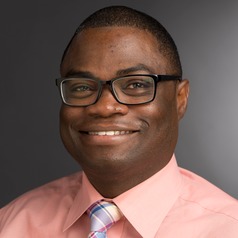
André O. Hudson
Interim Dean/Professor-College of Science, Rochester Institute of Technology
The major themes of research in the Hudson lab are vested in biochemistry and microbiology. More specifically, in the areas of amino acid metabolism, structural analyses of enzymes involved in amino acid and bacterial peptidoglycan metabolism that are putative targets for antibiotic development, and the isolation, identification and genomic characterization of plant-associated bacteria. Dr. Hudson has secured approximately $3 million in federal/state funded grants and contracts as PI and or CoPI from the NIH, NSF, Bayer Corporation, Sweetwater Energy and Natcore Technology. Dr. Hudson has published over 75 peer-reviewed articles.
Dr. Hudson is a highly respected and well liked teacher. His teaching contributions are substantial especially during the conversion to semesters when he rewrote all the courses he teaches. Dr. Hudson has mentored and engaged many students in research and has published in peer-reviewed journals with a number of them. Many of his students have gone to pursue further research at prestigious institutions.
Dr. Hudson joined the RIT faculty in 2008 following a post-doctoral fellowship at Rutgers University. He earned his B.S. (2000) in Biology from Virginia Union University, Richmond, VA., and his Ph.D. (2006) in Plant Biochemistry from Rutgers University.
Less ![]()
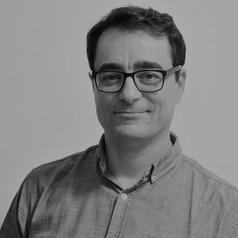
Andrea Boggio
Professor of Politics, Law and Society, Bryant University
Legal scholar and social scientists interested in science, technology, and health policy.
Less ![]()
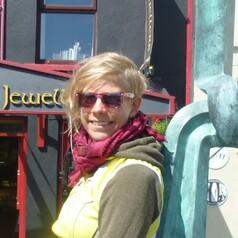
Andrea Brock
Lecturer in International Relations, University of Sussex
I am a political ecologist and political economist with interest in the relationship between extractivism, corporate power, and state violence. I have conducted research on coal mining, hydraulic fracturing, renewable energy generation, the political ecology of High Speed Railways in the UK, as well as policing and criminalisation of (ecological) dissent.
I completed my PhD dissertation with the title "Conserving power: An exploration of biodiversity offsetting in Europe and beyond" in 2019. In the dissertation, I analysed biodiversity offsetting as a technology of governance to manage anti-mining resistance and legitimise mining activities in the face of public opposition and ecological destruction.
Before joining Sussex University in 2013, I worked at the the Institute for Environmental Studies at the VU University and a number of nongovernmental organisations on issues of trade, the right to food, and the environment.
I am a member of the Centre for Global Political Economy, the STEPS Centre, and the Sussex Energy Group, and I co-convene the Politics of Nature reading group, together with Amber Huff and Will Lock.
Less ![]()
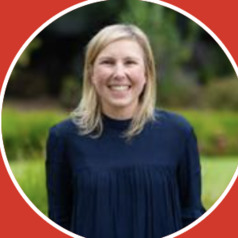
Andrea Bruder
Senior Lecturer in Physiotherapy and Post-doctoral Research Fellow, La Trobe University
Dr Andrea Bruder is a Senior Lecturer in Physiotherapy and Post-doctoral Research Fellow at the La Trobe Sport and Exercise Medicine Research Centre (LASEM). Her research focuses on primary and secondary prevention of knee osteoarthritis, with a special interest in reducing gender disparity in musculoskeletal injury risk and long-term burden.
Andrea was the clinical coordinator of a collaborative study with the Australian Football League to co-design, implement and evaluate an injury prevention program (Prep-to-Play PRO) in elite women's Australian Rules Football (AFLW). She is currently a trial coordinator on an NHMRC-funded clinical trial (SUPER knee) investigating the effect of a supervised exercise and education program on symptoms, function and quality of life in young adults after an anterior cruciate ligament injury.
Andrea is a physiotherapist, and her PhD thesis investigating the role of exercise in upper limb fracture rehabilitation was awarded the Nancy Millis Medal for completing a PhD thesis of exceptionally high quality in September 2018.
Andrea has more than 30 peer-review publications. She currently supervises 3 PhD students, and one Honours student.
Less ![]()
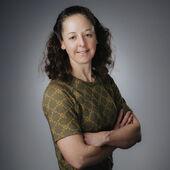
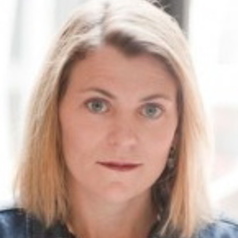
Andrea Carson
Lecturer, Media and Politics, School of Social and Political Sciences; Honorary Research Fellow, Centre for Advancing Journalism, University of Melbourne
Dr Andrea Carson completed a PhD on the future of investigative journalism and Australian broadsheet newspapers. She has a Masters in International Politics (UoM) and was a journalist who started her journalism career in newspapers (The Age) before working in radio (ABC 774, RRR), online and television (7.30 Report). She holds a BA in politics and English literature.
Less ![]()

Andrea Castelletti
Full Professor, Natural Resources Management and Environmental Systems Analysis, Polytechnic University of Milan, Polytechnic University of Milan
Andrea Castelletti is a professor of Natural Resources Management and Environmental Systems Analysis at Politecnico di Milano, Italy and a Academic Guest at the Department of Civil and Environmental Engineering, ETH Zurich, Switzerland.
He received a MSc degree in Environmental Engineering and a PhD in Information Engineering from Politecnico di Milano in 1999 and 2005. He was visiting scholar at Cornell University, ETH Zurich, Lancaster University, and University of Western Australia. From 2007 to 2015 he was Adjunct Professor at the Centre for Water Research of the University of Western Australia. He is the head of the Environmental Intelligence for Global Change Lab at Politecnico di Milano.
Dr. Castelletti research interest includes water systems planning and control under uncertainty and risk, decision-making for complex engineering systems, big environmental data analytics and smart sensing, information theory and selection for environmental decision making. Dr. Castelletti is co-author of 2 international books on integrated water resource management, more than 180 publications in international journals, book chapters and conference proceedings. In 2009 is was awarded a senior fellowship by the Japanese Society for the Promotion of Science, in 2010 an Early Career Excellence Award by the International Environmental Modelling and Software Society, in 2013 the Italy-Canada Innovation prize, in 2016 the EFARRI award, and in 2018 he was Biennial Medalist for the International Environmental Modelling and Software Society.
Dr. Castelletti serves the scientific community as the chair of the EGU Program Committees on Water policy, management and operation and member of the ASCE/EWRI Environmental and Water Resources Systems Technical Committee (since 2011). He is the past chair and current deputy chair of the IFAC Technical Committee TC8.3 on Modelling and Control of Environmental Systems (2008-2014). He is Associate Editor of Water Resources Re- search, Journal of Hydrology, Environmental Modelling and Software, and Socio-Ecological Systems Modellin
Less ![]()
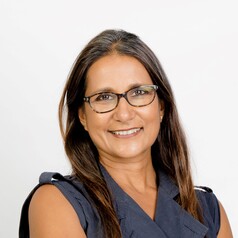
Andrea de Silva
Adjunct professor, Monash University
Andrea has over 25 years of experience working across diverse areas of public health, prevention, social justice and inequalities. She is skilled at researching, co-designing and evaluating solutions to complex social problems informed by lived experience, data, evidence and practice-based knowledge. Andrea has led research teams in top tier universities and previously held roles as Research Director in public sector and NFP organisations. Bringing her own lived experience and expertise, Andrea also shines a light on aspects of marginalisation, discrimination, and cultural and racial diversity. She has published over 150 research articles and reports, presented internationally, and is an adjunct Professor at Monash University.
Less ![]()
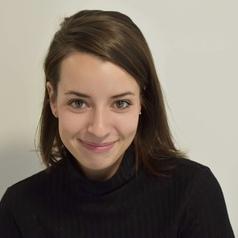
Andrea DeKeseredy
PhD student, Sociology, University of Alberta
Andrea DeKeseredy is a PhD student in the department of sociology at the University of Alberta. She has an MA in sociology from the University of Alberta and a Master of Social Work from West Virginia University. Her research centers on organizational inequality with a focus on gender, work, and family.
Less ![]()
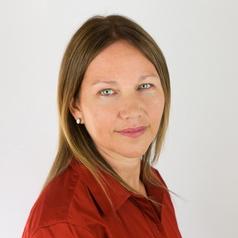
Andrea Doucet
Professor and Canada Research Chair in Gender, Work, and Care, Brock University
Andrea Doucet is a Canada Research Chair in Gender, Work, and Care, Professor in the Department of Sociology and Centre for Gender and Women’s Studies at Brock University and Adjunct Research Professor in Sociology at Carleton University and the University of Victoria. She has published widely on care/work practices and responsibilities, fathering, parental leave policies, feminist and ecological onto-epistemologies, narrative analysis, research ethics, and genealogies of concepts. She is the Project Director and Principal Investigator of the SSHRC Partnership program, Reimagining Care/Work Policies and Co-Coordinator of the International Network of Leave Policies and Research.
Less ![]()
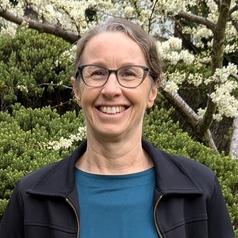
Andrea Foley
Assistant research fellow, University of Otago
Andrea (Kāi Tahu, Kāti Māmoe, Waitaha) is an Assistant Research Fellow at Ōtākou Whakaihu Waka, the University of Otago, with a background in computer science, geology and environmental science. Andrea is the Lab Manager for the Physics Antarctic Ice Lab and Kaitiaki Kaupapa for He Kaupapa Hononga: Otago’s Climate Change Research Network. Research projects that Andrea has worked on recently include the Climate Action Tracker Aotearoa, Climate Scorecard Project (Stuff), Construction company readiness for climate change (BRANZ), Envisioning low carbon futures: a stakeholder/community approach, and sulfate irrigation trials at Macraes gold mine.
Less ![]()
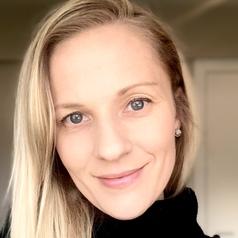
Andrea Fraser
Assistant Professor Faculty of Education, Mount Saint Vincent University
Assistant Professor, Faculty of Education
Less ![]()
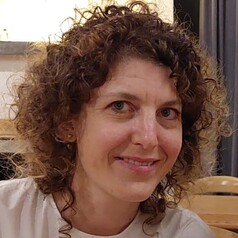
Andrea Furger
Graduate Researcher and Teaching Fellow in International Law, The University of Melbourne
Andrea Furger is a Graduate Researcher and a Teaching Fellow at Melbourne Law School (MLS). Her research focuses on international criminal law and state cooperation from an interdisciplinary angle (law/international relations) and her doctoral thesis examines the complexities of extraterritorial evidence collection in the context of investigations and prosecutions of core international crimes (war crimes, genocide, crimes against humanity, crime of aggression).
Andrea joined MLS in 2022 after over a decade as a practitioner in the field of international criminal justice, human rights, and diplomacy. She worked at the International Criminal Court (Office of the Prosecutor), the UN Office of the High Commissioner on Human Rights (mandate of the Special Rapporteur on Torture) and the Swiss Federal Public Prosecutor's Office.
Andrea holds an LLM in International Criminal Justice and Armed Conflict from the University of Nottingham (UK) and a Licence/Master of Arts from the Graduate Institute of International and Development Studies in Geneva, Switzerland.
Less ![]()
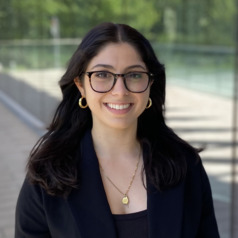
Andrea Galizia
Researcher, JD Candidate, Royal Roads University
Andrea Galizia is a JD Candidate at Osgoode Hall Law School. She works as a Senior Editor on the Osgoode Hall Law Journal. Before attending law school, Andrea completed her Master’s degree in political science at the University of Toronto where her work focused on comparative constitutionalism. Andrea is a founding member of the Digital Public Interest Collective, and is the producer of the DPI Collective podcast.
Less ![]()
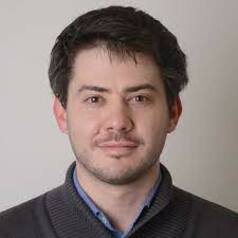
Andrea Ghiselli
Assistant Professor, School of International Relations and Public Affairs, Fudan University
I am an Assistant Professor at the School of International Relations and Public Affairs (SIRPA) of Fudan University. I am also a Non-Resident Research Fellow with the TOChina Hub and the Head of Research for the TOChina Hub’s ChinaMed Project. I am also a member of the Editorial Team of OrizzonteCina.
With a focus on China and Sino-Middle Eastern relations, my research seeks to explain how a rising power’s foreign and security policy is shaped by its own domestic politics as well as that of other countries.
At SIRPA, the subjects that I teach include foreign policy analysis, Chinese diplomacy, as well as academic publishing.
I am also a reviewer for International Security, International Affairs, International Studies Quarterly, China Quarterly, Asia Policy, Asian Security, Journal of Strategic Studies, Journal of Contemporary China, Cambridge Review of International Affairs, International Politics, The International Spectator, Italian Political Science Review, Armed Forces & Society, and The China Review. I also review book manuscripts for Oxford University Press, Columbia University Press and Australia National University Press.
Less ![]()
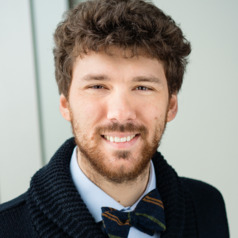
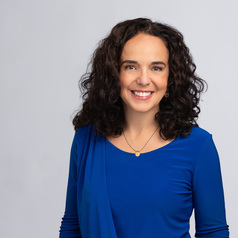
Andrea Gonzalez
Associate Professor, Department of Psychiatry and Behavioural Neurosciences, McMaster University
Andrea Gonzalez, Ph.D., is an Associate Professor in the Department of Psychiatry and Behavioural Neurosciences at McMaster University, Canada. She holds a Tier II Canada Research Chair in Family Health and Preventive Interventions and was recently inducted in the Royal Society of Canada as a New College Member. Currently, she is an Editorial Board Member for the journals Archives of Women’s Mental Health, Child Abuse & Neglect and Child Maltreatment and is a member of the Public Health Agency of Canada’s Child Maltreatment Surveillance Working Group, as well as the World Health Organization’s Extending the Benefits Across the Life Course Working Group. Dr. Gonzalez received her PhD (2008) in Psychology and Neuroscience from the University of Toronto and completed her CIHR and Lawson Foundation funded postdoctoral fellowships at the Offord Centre for Child Studies (2012). Her research program focuses on the developmental consequences of early life adversity; the impact of traumatic experience on brain development, behavioral outcomes and health; the intergenerational transmission of risk; and developing and evaluating evidence-based preventive interventions. Her previous training encompasses psychology, neuroscience, and epidemiology with specific emphasis on assessing preventive interventions, maternal and child health, parenting, and family violence.
Less ![]()
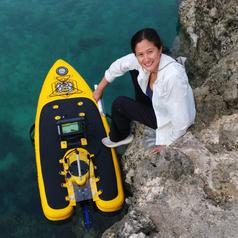
Andrea Jalandoni
Senior research fellow, Griffith University
I am a Digital Archaeologist specializing in rock art recording and enhancement using photogrammetry and other remote sensing techniques including lidar and unmanned aerial systems. I have almost 20 years of archaeological experience in Australia, Southeast Asia, and Micronesia working on some of the most famous World Heritage Sites like Kakadu National Park (NT), Niah Cave (Malaysia), and Nan Madol (Pohnpei).
I am a Senior Research Fellow at the Place, Evolution, and Rock Art Heritage Unit at Griffith University currently working on an ARC Special Research Initiative (Art at a crossroads: Aboriginal responses to contact in northern Australia and the Griffith Postdoctoral Fellowship (Lost and Found CHamoru Cultural Heritage: Using lidar to find archaeological sites in the Mariana Islands) among other projects.
Less ![]()
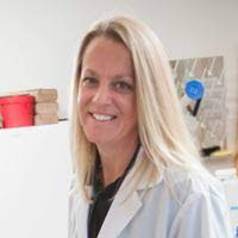
Andrea Kasinski
Associate Professor of Biological Sciences, Purdue University
Greater than 90% of the human genome is transcribed, yet the functional role for most transcripts is unknown. Many of these unknown transcripts fall into a class of RNAs referred to as non-coding RNAs. The general goal of the Kasinski Lab is to determine the molecular contribution of non-coding RNAs (microRNAs, lncRNA, circRNAs) in normal and disease cells, and to capitalize on this knowledge through developing RNA-based therapeutics. The current projects in the Kasinski lab are subdivided into the following:
Project 1: Ligand-mediated delivery of therapeutically relevant small RNAs
Project 2: Endogenous delivery of RNAs through secreted extracellular vesicles (ie. exosomes)
Project 3: High throughput screening for small molecule inhibitors that alter miRNA biogenesis
Project 4: Identification of miRNAs and protein-coding genes mediating drug resistance
Less ![]()
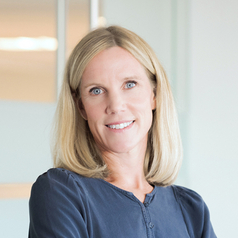
Andrea Kendall-Taylor
Distinguished Practitioner in Grand Strategy, Jackson School of Public Affairs, Yale University
Andrea Kendall-Taylor is a Senior Fellow and director of the Transatlantic Security Program at the Center for a New American Security (CNAS). She works on national security challenges facing the U.S. and Europe, focusing on Russia, threats to democracy, and the state of the transatlantic alliance.
Prior to joining CNAS, she served for eight years as a senior intelligence officer. From 2015 to 2018, she was a deputy national intelligence officer for Russia and Eurasia at the National Intelligence Council (NIC) in the Office of the Director of National Intelligence (DNI). In this role, she led the U.S. intelligence community’s strategic analysis on Russia, represented the NIC in interagency policy meetings, provided analysis to the National Security Council, and briefed the DNI and other senior staff for White House and international meetings. Prior to joining the NIC, Andrea was a senior analyst with the CIA.
Outside of CNAS, Kendall-Taylor has been a CNN national security analyst. Her work has been published in numerous political science and policy journals, including the Journal of Peace Research, Democratization, Journal of Democracy, Foreign Affairs, The Washington Post, The Washington Quarterly, and Foreign Policy. She received her BA in politics from Princeton University and her PhD in political science from the University of California, Los Angeles. She was a Fulbright scholar in Azerbaijan and Kazakhstan, where she conducted dissertation research on oil and autocracy
Less ![]()
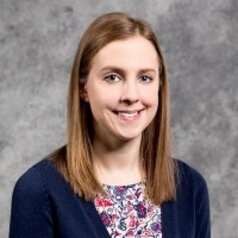
Andrea Leschewski
Associate Professor of Applied Economics, South Dakota State University
Dr. Andrea Leschewski is an Associate Professor of Applied Economics at South Dakota State University. She received her Ph.D. in Agricultural, Food, and Resource Economics from Michigan State University and a BA in Economics and Mathematics from Carthage College. Joining South Dakota State University in 2017, Dr. Leschewski teaches undergraduate and master’s level agricultural economics and marketing courses within the Ness School of Management and Economics. Dr. Leschewski’s research program focuses on improving food security and health among vulnerable, low-income populations in the United States. Her recent research evaluates the impact of food and nutrition assistance and nutrition education policies on measures of food hardship and public health.
Less ![]()
- Market Data





















